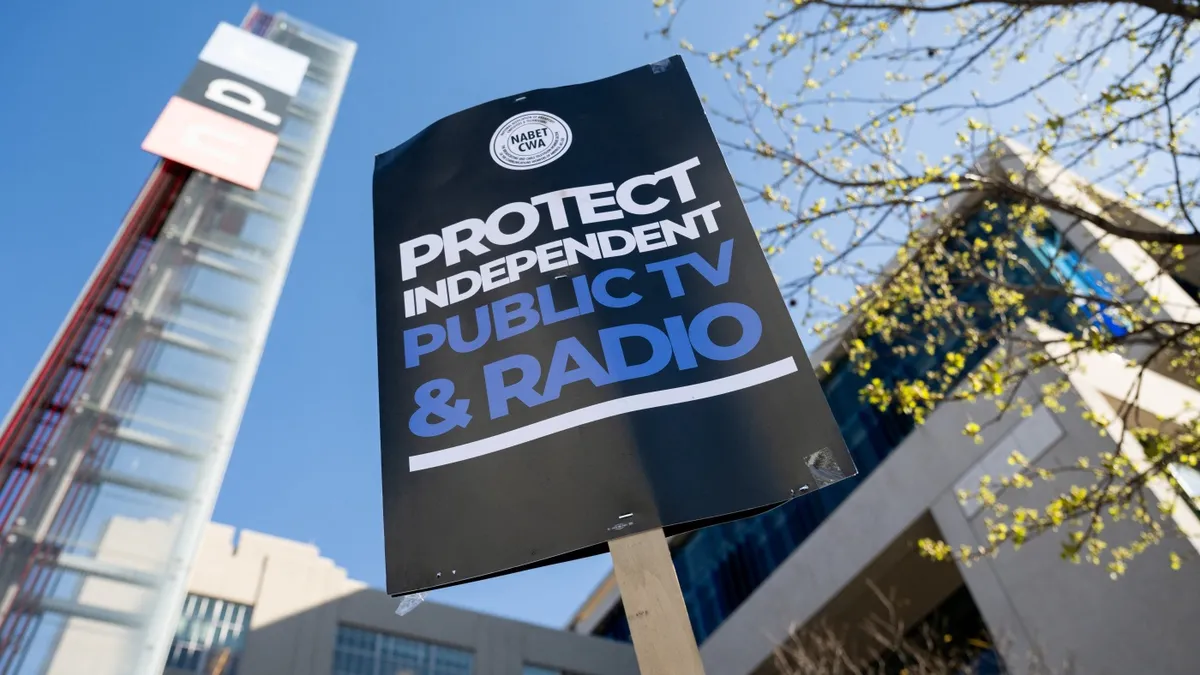
The House of Representatives has officially approved a significant plan proposed by the Trump administration to rescind a staggering $9 billion in previously allocated federal funds. This legislation includes a critical cut of $1.1 billion targeted at the Corporation for Public Broadcasting (CPB), effectively eliminating all federal support for public media outlets such as NPR and PBS, along with their respective member stations. The vote, which concluded with a narrow margin of 216-to-213, saw the backing of nearly all Republican representatives, with only two dissenting voices.
Immediately following the vote, NPR CEO Katherine Maher issued a statement expressing deep concern, labeling the funding cut an "irreversible loss" to the public radio system. Maher emphasized that this decision would lead to the dismantling of cherished local civic institutions and demonstrate a disregard for the public’s will. Public funding has historically supported an enriching tapestry of cultural, informational, and educational programming, providing essential services such as emergency alerts for about $1.60 per American annually.
Many demographics, including parents, children, senior citizens, and rural communities, are poised to feel the negative effects of this vote. North Carolina Representative Alma Adams highlighted the crucial role of public broadcasting during crises, recalling how public radio became a lifeline for thousands during Hurricane Helene, when traditional communication networks failed.
The House's decision follows a lengthy vote-a-rama in the Senate that took place late Wednesday into early Thursday. During this period, a series of amendments to the rescission package were proposed, with all but one failing along party lines. Republicans consistently blocked efforts to alter President Trump's request for rescission. The sole successful amendment was designed to protect PEPFAR, the U.S. initiative for AIDS relief, originally established under President George W. Bush.
As a result of the House vote, the CPB is set to lose the $1.1 billion designated for funding over the next two years, in addition to approximately $7 billion in cuts to other programs. The CPB has historically functioned as a vital conduit for federal funding to NPR, PBS, and their affiliated stations, which rely heavily on this financial support.
Although NPR itself depends on federal funds for a relatively small portion of its budget, its nearly 1,000 member stations are at risk, as many receive a significant part of their operating revenue through the CPB. NPR has warned that these funding cuts could lead to the closure of numerous stations, particularly those serving rural or underserved populations, including Native American communities.
In response to the looming funding challenges, South Dakota Republican Senator Mike Rounds announced a deal to repurpose funds from the Biden administration to support 28 stations catering to Native American listeners across nine states. However, Loris Taylor, President and CEO of Native Public Media, criticized this compromise as "structurally impractical." Meanwhile, PBS CEO Paula Kerger condemned the cuts as contrary to the desires of the American public, asserting that the majority of citizens trust PBS and recognize its significant value to their communities.
A recent Harris Poll revealed that a substantial 66% of Americans support federal funding for public radio, with similar sentiments from 58% of Republicans and 77% of Democrats. The poll surveyed 2,089 U.S. adults, yielding a margin of error of 2.5 percentage points. Despite this widespread backing, NPR has repeatedly faced criticism from conservative circles, often accused of left-leaning bias in its programming.
In a notable event last year, an essay by then-NPR business editor Uri Berliner critiquing the network's coverage fueled further allegations of liberal bias, leading to his suspension and eventual resignation. In defense of NPR’s editorial direction, Edith Chapin, NPR's chief news executive, remarked on the importance of diverse perspectives in storytelling.
Amidst this contentious legislative backdrop, Nevada Republican Representative Mark Amodei acknowledged the necessity of safeguarding local stations, even as he recognized the frustrations many conservatives hold toward NPR and PBS. He urged that anger directed at network executives should not translate into funding cuts for local stations, especially those in regions that heavily supported Trump.
Concerns have also arisen regarding the rescission process itself, which has not been employed in over 25 years. Lawmakers from both parties have cautioned that such actions could complicate future appropriations, particularly as the government approaches a September 30 funding deadline. Senator Thom Tillis (R-NC) voiced apprehensions about the implications of rescission on bipartisan efforts to fund the government.
As discussions continue, Office of Management and Budget Director Russell Vought indicated that the administration plans to present additional rescission proposals to Congress soon. Meanwhile, Representative Don Bacon (R-Neb.) expressed optimism about the Senate’s version of the bill, which removed cuts to PEPFAR, illustrating a potential pathway for future funding assurances for local public television stations.
The ongoing debate surrounding public broadcasting funding highlights the complexities of political negotiations and the profound impact these decisions will have on communities nationwide.